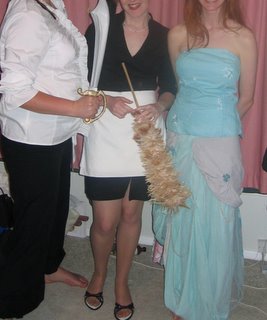Poet, polemicist, pagan, pretender to the throne of Poland and one of the great eccentrics of the 20th century. The book is Unquiet World. The recipient of this glittering intro and the subject of the memoir, is Count Geoffrey Potocki de Montalk – who is also my great grandfather.
Potocki was a controversial figure in New Zealand and English literature throughout his life. He was a poet of real, if minor talent and moved in the same circle as more renowned New Zealand poets R A K Mason and A R D Fairburn. Potocki himself earned notoriety in the 1930s when he was imprisoned for six months in an English gaol for publishing obscene works. The ensuing trial makes a compelling read, and I hope in recounting events to convey a sense of who Potocki was, and hopefully have a bit of a giggle in the process.
Potocki was born in Remuera in 1903. He had a rather tragic childhood, his mother died when he was 5 and when his father remarried Potocki inherited your classical wicked stepmother. But he was incredibly bright, excelled at school and as a young man dabbled in the professions of law, teaching and theology.
At age 21 Potocki married a nice girl Lillian, and soon after they had a daughter, Wanda, who is my paternal grandmother. Potocki’s unconventional leanings and his calling as a poet meant he had difficulty holding down a regular job and providing for his family. When my grandmother was 2 Potocki rather callously divorced Lillian, left the two of them unsupported and on the platform of his burgeoning literary career in New Zealand set sail for the Old World.
Potocki said of New Zealand at the time: page 95
“Poets are as badly treated in this land of white savages and All Blacks as they are feted and laurelled and crowned in Merrie England”
He would not return to New Zealand for over 50 years.
Potocki arrived in London in 1928 and split his time over the next few years between France and England, gaining recognition for his writing until he was being published widely. Perhaps if had not come to the attention of the English judicial system he would have achieved even greater success. But Potocki was a wee bit of a ladies man, and some of his more private writings on the themes of love and beauty and sex were – risqué for the time.
In 1931 he comprised a collection of what he termed “sexually frank verses” and approached a printer with the purpose of getting the poems set in linotype so Potocki could print copies for a select group of friends in the privacy of his own home. Unfortunately, the printer took a disliking to Potocki and turned the poems over to the police. Potocki was arrested and charged with uttering and publishing an obscene libel.
Here Lies John Penis
Here lies John Penis
Buried in the Mount of Venus
He died in tranquil faith
That having vanquished death
HE SHALL RISE up again
And in Joy’s Kingdom reign
Here lies a poet
Who never had a fuck:
Let’s hope in heaven
He’ll have much better luck!
N.B – He has since – Ed.
For…and his girl, on leaving them the key of my room.
Herewith the key to the heaven between her thighs –
Take it, and in its use be stern and wise.
May Eros leave his fiercest dart in her
And fill her cunt with burning oil and myrrh;
And, not to leave so sweet a thing forlorn,
Apollo give you a stiff splendid horn.
The place is lucky, since the poet’s bed
Is hallowed with a bleeding maidenhead.
Potocki’s characteristic flamboyance, stalwart contempt for authority and undying conviction in his own principles made for a compelling trial.
As a devout worshipper of the Sun God, Apollo, Potocki would pray twice daily to Apollo and other heathen gods at a small alter, chanting in Latin, burning incense and ringing a small brass bell. He also sunbathed nude throughout his life. Finding himself in Court, Potocki refused to swear an oath on the Bible, instead lifting his arm in a Roman salute he intoned a pagan oath. This immediately alienated the judge, a man who was as ‘ordinary, respectable and unimaginative as the Count was extraordinary, unconventional and poetic’.
Potocki had elected trial by jury, expecting the case to be thrown out without too much ado. But the judge intimidated the jury, belittled the defense counsel and on the literary value of Potocki’s poems remarked,
What was good enough for the time of Shakespeare is not good enough for us as we live on a higher moral plane.
With legal impropriety, the judge bullied the jury into a finding of guilty.
Potocki was unphased. When questioned as to what he considered an appropriate punishment, he responded, “to be sentenced to several years in Buckingham Palace”.
Instead he got 6 months in Wormwood Scrubs, one of Europe’s largest penal institutions.
There was outrage in the literary world regarding this unbridled censorship and attack on freedom of expression. An appeal was brought with support from literary giants of the time including W B Yeats, T S Eliot, H G Wells and Virginia Woolf.
However, counsel for Potocki did not bring the issue of the trial judge’s impropriety as a ground of the appeal and Potocki was forced to serve his entire sentence.
His time in prison cemented and radicalized Potocki’s views. He developed a deep hatred of the English, and was so incensed that for many years he would not speak, write or think in English. By the time of his death, in addition to French and Provencal, Potocki spoke, wrote and/or read Latin, Greek, Polish, Hungarian, Italian, German and Sanskrit.
Potocki sympathized with the Germans during the War, and became intolerant of Jews, Communists and Christians. After he emerged from prison Potocki began expressing claims to the throne of Poland. He developed an obsession with genealogy and published vociferously on the subject.
He was quoted as saying – page 31 “To try to pretend that heredity does not matter…is just plain ridiculous and hypocritical. It is so utterly ridiculous that it does not improve one’s opinion of the Human Race that such an idea can be raised at all. Nor is there the slightest truth in the two-faced assertion that man is in this respect different from the animals. You positively cannot get a great man out of sixty four quarterlings of dolts, nor a beautiful woman out of thirty hideous families”.
Although he pursued the throne in a light hearted way, obtaining a small silver crown, devising ceremonies in Latin and bestowing knighthoods, the basis of the claim was a serious matter for Potocki. While living in Poland he intricately traced his descent from the House of Piast, one of the great ruling dynasties of Poland. This was in stark denial of the fact that an elective system had been in place in Poland since the 1600s, which according to the Count had contributed to the destruction of the Polish State.
Potocki, who demanded to be addressed by his title, returned to New Zealand in the 1980s, by this time an old man. I don’t remember, but he visited the kiwifruit orchard where I grew up, with the long flowing hair he had had his whole life and wearing the medieval robes he took to wearing after his release from prison. My parents were referred to as ‘peasants tilling the land’, Potocki no doubt taking umbrage that this was what his descendants had been reduced to.
I admit, should I be introduced to the Count today (he died in 1997) I would object to much of his politics, find his garb strange and undoubtedly classify him as eccentric. But there was something so alluring in how completely him he was, his wit, his colour, his talent and downright audacity inspired me and won my admiration. And while writing this, I admit to picking up pen and paper and writing for another purpose. And perhaps that…..is genealogy.
 i had quite a sociable weekend. Unfortunately the birthday girl, due to a flying umbrella, had concussion and perhaps didn't enjoy the house full of people so much. With characteristic philanthropy I turned the music off at around 12 and screamed at everyone to get out when she shrunk off to bed, and then trying to salvage my rep feigned wanting to drag everyone in to town as the rationale for the unhospitable treatment. Was out till three and didn't enjoy it that much, too many skanky beautiful people in their halloween costumes grinding up against me in an oxygen starved ear-splitting bar. I need to be drunk enough to be able to abuse the bouncers to enjoy that kind of setting. Got out of clean up the next day though........
i had quite a sociable weekend. Unfortunately the birthday girl, due to a flying umbrella, had concussion and perhaps didn't enjoy the house full of people so much. With characteristic philanthropy I turned the music off at around 12 and screamed at everyone to get out when she shrunk off to bed, and then trying to salvage my rep feigned wanting to drag everyone in to town as the rationale for the unhospitable treatment. Was out till three and didn't enjoy it that much, too many skanky beautiful people in their halloween costumes grinding up against me in an oxygen starved ear-splitting bar. I need to be drunk enough to be able to abuse the bouncers to enjoy that kind of setting. Got out of clean up the next day though........








